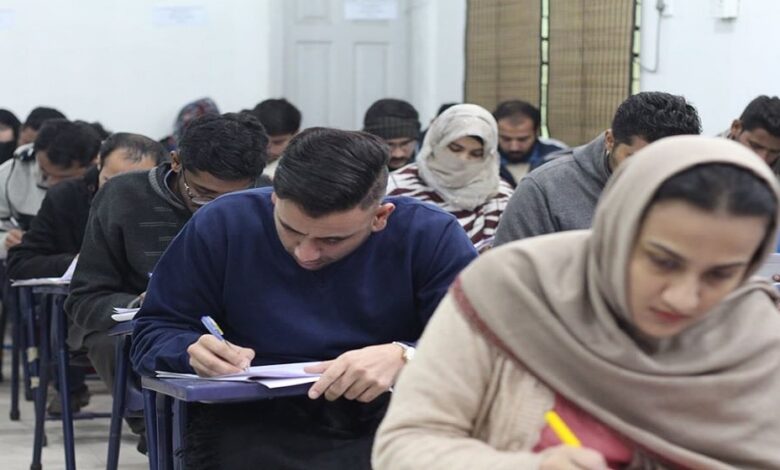New Minimum Passing Marks Announced for Medical Students

A major change to academic norms has been announced by the Pakistan Medical and Dental Council (PMDC), which would lower the minimum passing scores and attendance requirements for medical college students.
The most recent ruling cut the minimum attendance requirement from 90% to 85% and reduced the passing rate from 70% to 65%. All medical college students, regardless of academic year, will be affected by these changes.
Only a few weeks have passed since the previous requirements of 70% grades and 90% attendance were implemented.
Relatedly, the Pakistani government has made strong action to control tuition costs for BDS and MBBS programs. A significant decision was taken to restrict the yearly tuition costs for private medical and dentistry institutions at Rs 1.8 million as part of the Medical Education Reforms committee, which is led by the deputy prime minister and was established at the prime minister’s request.
Students and families have long been concerned about the growing expense of medical education, and this action attempts to guarantee improved affordability and accessibility.
The fee cap resolution was reached after several council meetings on June 4, 2022, December 10, 2023, and February 23, 2024. A subcommittee led by Professor Dr. Masood Gondal carried out a thorough study on February 27, 2025, after consulting with many parties, including the Pakistan Association of Medical Institutions (PAMI) and private institutions.
The committee suggested an annual maximum of Rs 1.8 million following a thorough financial study, with future increases being linked to the Consumer Price Index (CPI). To encourage openness, this structure will be made public and will be in use for four years in BDS programs and five years in MBBS programs.
Institutions that want to charge more than Rs 2.5 million must give thorough explanations that include financial records, metrics for evaluating the quality of education, and statistics on comparable services. To prevent unnecessary financial pressure on students, only well-supported proposals will be taken into consideration; arbitrary fee increases will not be allowed.
For students from middle-class and lower-class backgrounds in particular, this program represents a significant advancement toward more equal medical education. The government commended the Deputy Prime Minister’s leadership in guiding these initiatives to success and reiterated its commitment to bolstering medical education via significant changes.




